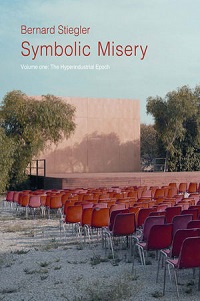London 18th-Century Postgraduate Reading Group, 24 March – High Art and Low Art
Join us for the next session of the London 18th-Century Postgraduate Reading Group, 3.30-5 pm on Friday 24 March, in Room 106, School of Arts, Birkbeck (43 Gordon Square, WC1H 0PD).
The hierarchies of art at the Royal Academy and the Society of Arts’ system of awards for excellence in drawing and design meant that most forms of artistic endeavour were categorised, ranked and compared in increasingly complex ways during the second half of the eighteenth century. However, the categories were permeable: many artists made careers both in high art and in the commercial world of product catalogues, advertising everyday goods. This session will look at some prints of ‘everyday’ items made by William Blake and John Bacon, with readings and images put together by Miriam Al Jamil (PhD candidate, Arts and Humanities, Birkbeck).
Guided by Granger’s category of ‘Painters, Artificers, Mechanics, and all of inferior professions’, we will look at Wedgwood’s catalogue – with its assertion that he would ‘rather give up the making of any particular article altogether, than suffer it to be degraded’ – together with an article by Anne Puetz, which discusses artisan instruction and 18th-century concerns about England’s competitiveness in the luxury goods trade. How did artists, designers and producers negotiate and engage with the status of artisanal work, and attempt to elevate and improve it? Did artists successfully straddle the divide or was there a penalty?
The readings are:
Josiah Wedgwood, Catalogue of Cameos, Intaglios, Medals, Bas-Reliefs, Busts and Small Statues (Etruria, 1787), pp. 63-73 – available here.
James Granger, A Biographical History of England […] consisting of Characters Disposed in Different Classes, and Adapted to a Methodical Catalogue of Engraved British Heads, 4 vols. (1769; 4th edn. London, 1804), I, ‘Plan of the Catalogue’, ‘Preface’, and pp. 277-83 – available here.
Anne Puetz, ‘Design Instruction for Artisans in Eighteenth-Century Britain’, Journal of Design History, 12 (1999), 217-39 – available here.
And the images are:
- William Blake, Creamware Shapes, from the Wedgwood Catalogue (1817).
- William Blake, River God, from Eleanor Coade, Coade’s Lithodipyra, or, Artificial Stone Manufactory: for all kind of statues, capitals, vases, tombs, coats of arms, & architectural ornaments &c. &c (London, 1784)
- John Bacon, Stock Classical Figures to hold candelabra [etching], from Coade’s Lithodipyra
- John Bacon, Further Classical Statuary [etching] from Coade’s Lithodipyra
These are all available here.
The London 18th-Century Postgraduate Reading Group is a student-run reading group organised in collaboration with the Centre for Enlightenment Studies at King’s and Birkbeck Eighteenth-Century Research Group. Staff and students at all London universities are very welcome. The reading group concentrates on a different theme each academic year, with an emphasis on primary texts and recent criticism. For more information, view the reading group’s blog.
If you have any queries about the readings or the reading group, please contact Robert Stearn (rstear01@mail.bbk.ac.uk) or Miriam Al Jamil (mstock05@mail.bbk.ac.uk).
.
.
Category: Archived Reading Groups
.
Tags: 18C, Granger, High Art, John Bacon, Kings, London 18th-Century Postgraduate Reading Group, Low Art, Puetz, Reading Group, Wedgwood, William Blake


